Visiting Cuba has always been high on my bucket list. I am sympathetic to its role as an anti-colonial beacon, even while not being in total agreement with its government. Its history, while similar to other Caribbean islands is unique, due to Cuba’s size and its isolation during the past sixty years.
This year Viking Cruise Lines started visiting Cuba. Unlike many other lines, that advertise a Cuba cruise but, in reality, stop there for only one day out of seven, Viking stays for four out of seven days. So, the Amazing Ms. D and I organized a group of seven of our friends to take this adventure.
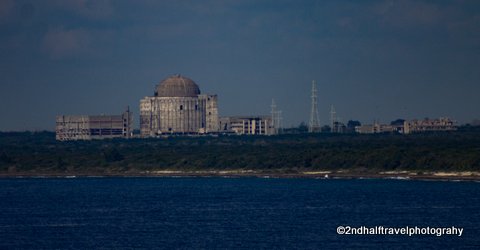
Unfinished nuclear power plant near Cienfuegos
Our first stop in Cuba, after a day at sea, was the city of Cienfuegos. The entrance to the Bahía de Cienfuegos is through a narrow channel. On the west side of this passage is the town of Jagua, the original Spanish settlement in this area. The upper deck of the ship offered a great view of El Castillo de Jagua. This fortress was built in 1742 to defend the bay at the channel’s narrowest point. I had great views of the houses of fishermen along the water.
At the north end of the bahía is the city of Cienfuegos. It was founded in 1819 by French settlers from Bordeaux, Louisiana, and Haiti. The city became a major port because the bay is well protected from the ocean’s waves in storms, and the very fertile farmland in the area. It also offers easy access to the center of the island. The city has been named as a UNESCO heritage site because of its colonial architecture.
The Amazing Ms. D, one of our friends and I decided to skip the included, free, tour, and spend some time exploring on our own. We started by walking from the dock towards Parque José Martí, the city’s main square. We had traveled about three blocks when we were approached by Don Felipe, who drives a taxi in town. His cab is a three-wheeled vehicle, with passenger space in the back.
While Don Felipe and his passenger rolled up the canvas sides, turning the cab into a “convertible,” we all climbed in and got to know each other. It turned out that the passenger, Nancy, was a relative of Don Felipe’s. She had been an elementary school teacher, but after suffering an on-the-job injury, she was reassigned as a museum educator. Since we were all retired educators, we got along famously. Nancy heard that we were looking for places to buy locally made goods, especially a guayabera, something I do every time I visit Latin America. Nancy offered to join us after our tour and show us the best places to shop. 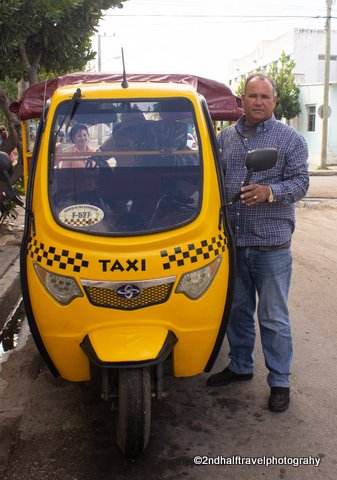 Don Felipe and his taxi
Don Felipe and his taxi
After dropping Nancy at work, Don Felipe took us on a tour of the city. We drove south, along the Malecon. We passed through several neighborhoods, some poor, some middle class. There were businesses open on all of the blocks, and a lot of construction, where materials were available. We ended at the Palacio de Valle, at the southern end of Paseo El Prado, the main street of the city.
The Palacio de Valle was built in 1917 by Don Acisclo del Valle. It is a Moorish structure with all of the style and flourishes that money can buy. The first floor, which is now a restaurant, has beautiful carved wood frames around the doors and windows. Its floor is lined in marble and dark wood beams and fixtures. The building is in the process of being restored, and the second floor is closed off during construction. For the price of 5 CUC you can buy a license to take photos in the building, and this comes with a mojito in the rooftop bar, which offers wonderful views of the bay.
After the Palacio, Don Felipe took us back to Parque José Martí. The day of our visit was the birthday of the great Cuban poet, philosopher and politician for whom the park is named. Martí was an anti-colonialist and is considered the grandfather of Cuban independence. There had been a festival in celebration of his birthday earlier in the day. By the time we arrived there were still some of the celebrants, especially school-age children, still in the plaza.
The plaza is surrounded by beautiful colonial buildings. Many have been restored and turned into galleries or government sponsored businesses. The square is also home to the only “triumphal” arch in the country, built in 1902 to celebrate Cuba’s declaration of independence from Spain.
At the southwest corner of the park is the Palacio Ferrer. Built in 1920, as the town house of Jose Ferrer Sires, it is in the style of Catalan modernism. Today, this structure is the home to the Palace of Culture of Cienfuegos, a gallery dedicated to local artists. The entrance fee is 1 CUC, and you can see the art work and also climb up to the tower for a wonderful view of the town.
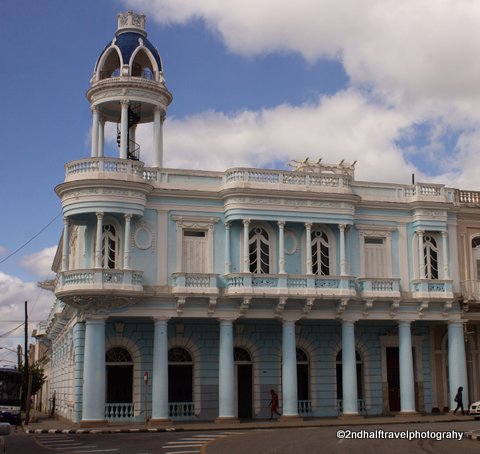
Palacio de Culturo de Cienfuegos
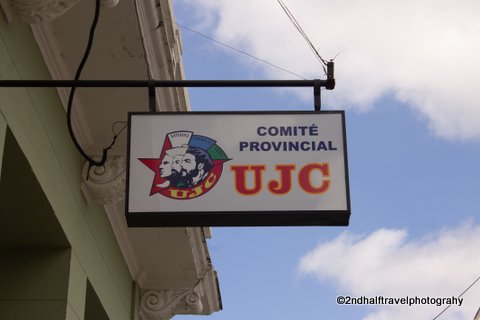
Office of La Union de Jovenes Communistas
It was a pleasure to wander the city of Cienfuegos and get to meet some of the people who live there. I strongly recommend spending time away form organized tours and see some of the real life of the people who live there.
Getting There:
Cruise ships anchor in the bay, and you have to tender in to shore. When you leave the dock there are kiosks where you can change money into CUC – Cuba’s “hard” currency. I suggest bringing Euros, instead of dollars, as there is a 14% charge for converting dollars. The dock is about 6 blocks from Parque José Martí, and about 9 blocks from Paseo El Prado. There are plenty of taxi drivers on or near the dock, who are willing to negotiate a price for giving a tour. Don Felipe charged us 10 CUC each for a 2-hour tour.

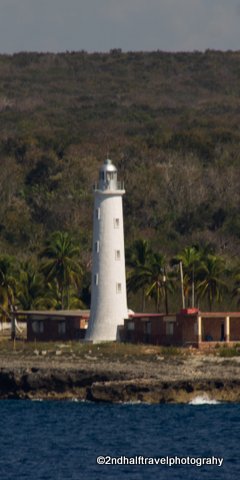 Cienfuegos Lighthouse
Cienfuegos Lighthouse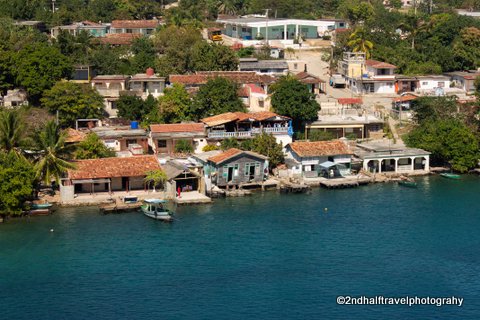
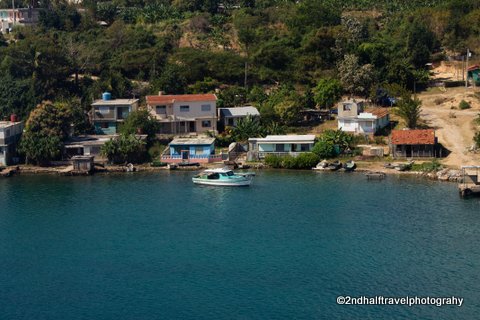
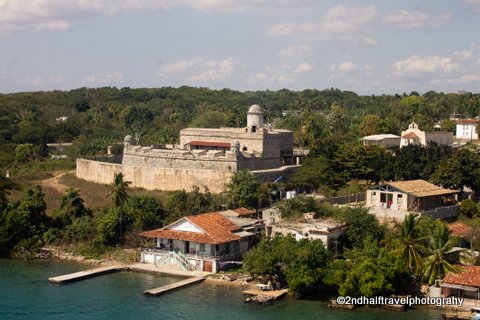
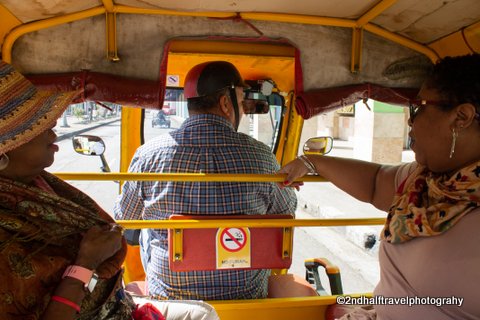
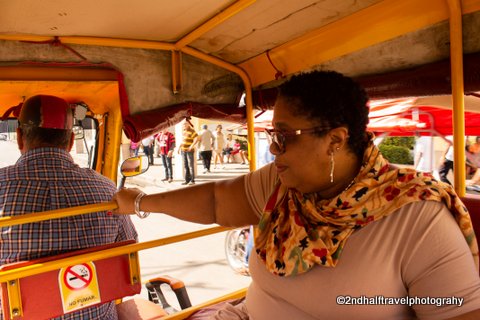
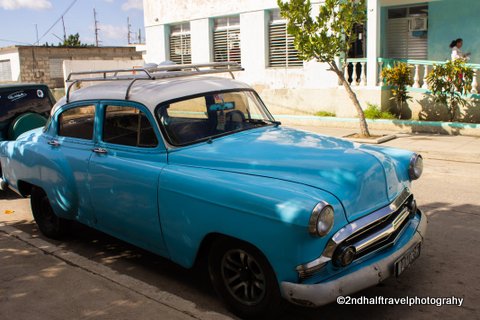
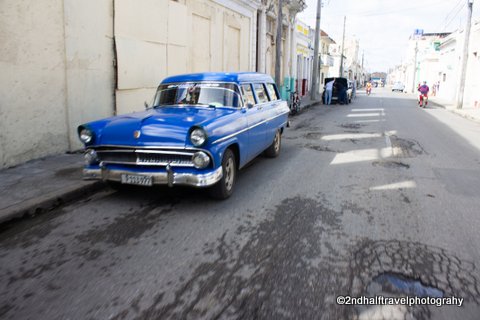
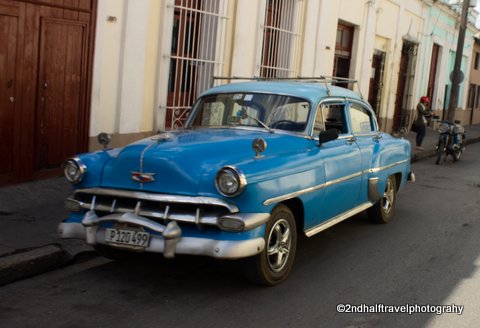
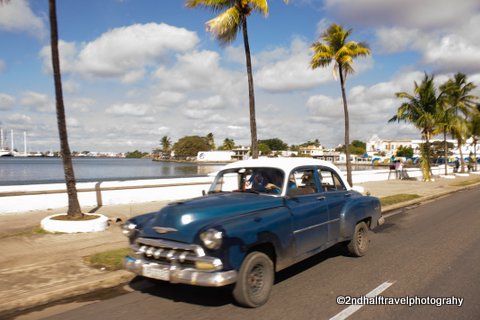
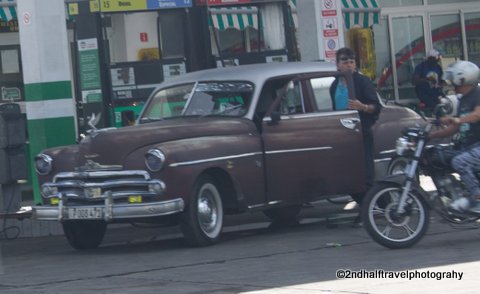
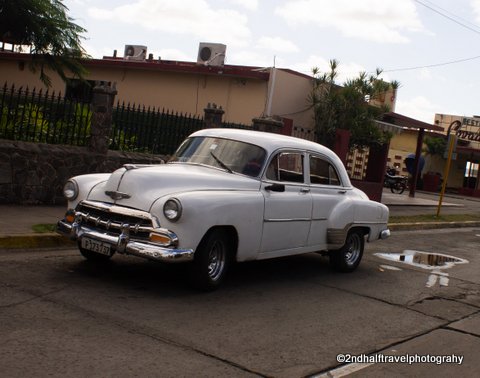
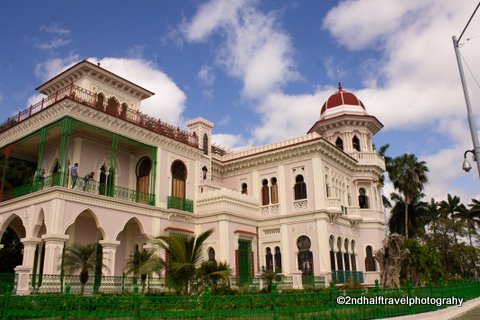
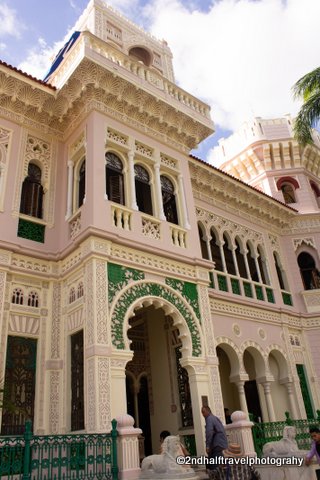
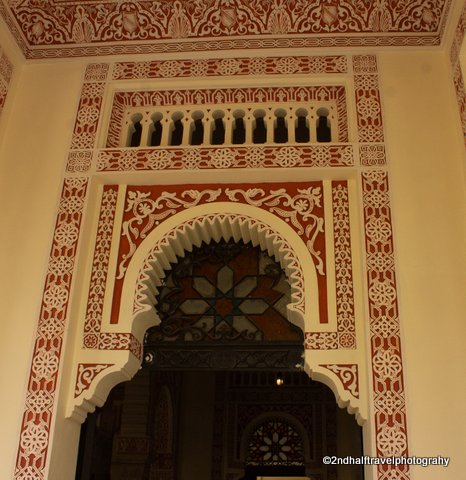
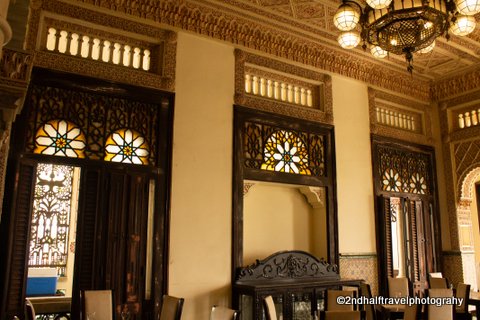
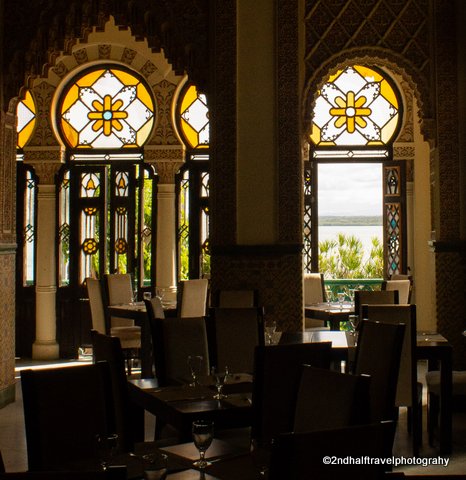
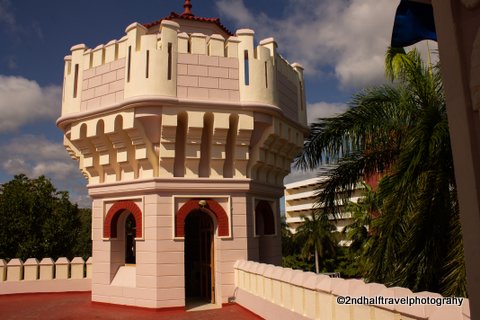
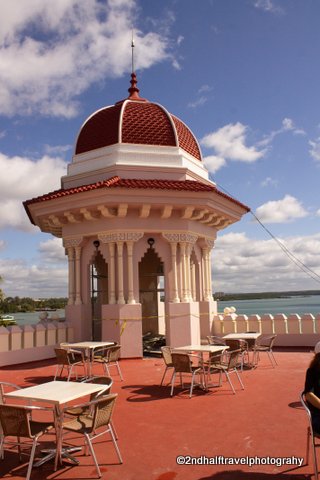
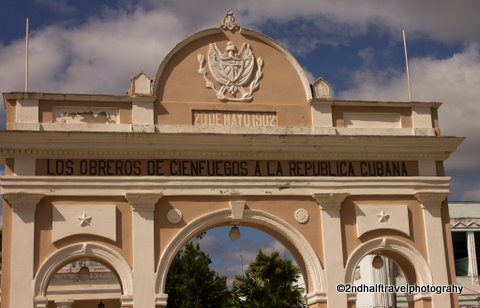
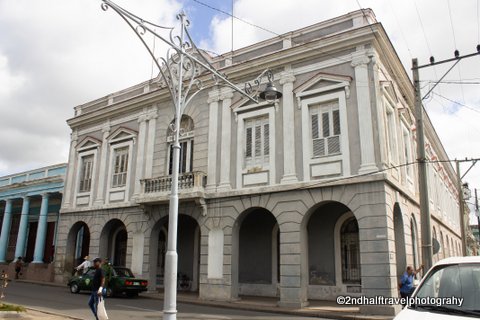
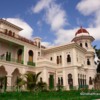
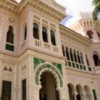
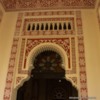
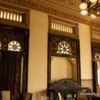
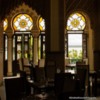
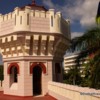
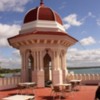
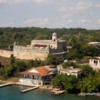
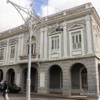
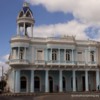
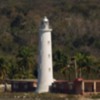
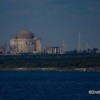
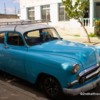
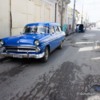
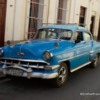
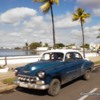
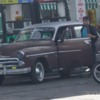
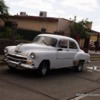
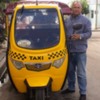
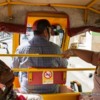
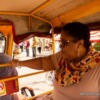
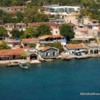
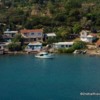
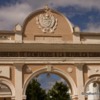
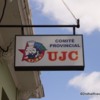
Comments (0)